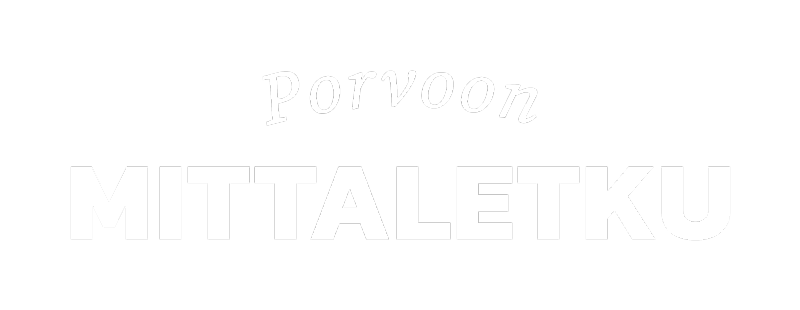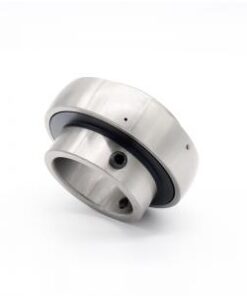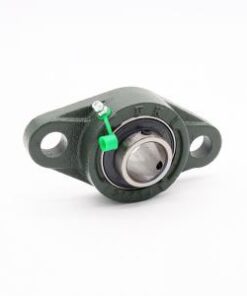Bearings
Bearings are parts between two bodies that move relative to each other. They support moving parts and reduce movement friction and vibration. They are found in almost all mechanical devices, such as cars.
Bearings can be divided into two main groups: sliding and rolling bearings. The function of plain bearings, such as spherical plain bearings, is based on sliding friction and they withstand both static and dynamic loads. The operation of rolling bearings, such as deep groove ball bearings, is based on the rolling friction generated by balls or rollers. The friction generated in them is small, and they are well suited for high rotational speeds.
The choice of bearings depends on the purpose of use and their requirements. It is important to choose the right bearing type and material so that the bearings work efficiently and last a long time. The type of equipment the bearing is used in and the type of load it must withstand affect the choice of bearing. The size and type of the load should also be taken into account. Heavier loads require stronger and more durable bearings. In some applications, it is also important to consider the damping properties of the bearing, in order to avoid problems caused by noise or vibration, for example.
Bearings are made of various materials, such as steel, rubber, plastic or ceramic materials. Steel bearings are the most common and are suitable for most applications. Rubber bearings are good at dampening noise and vibration. Plastic bearings are light. Ceramic bearings are very durable and are particularly suitable for high temperature applications. The selection must take into account the temperature and humidity of the bearing's operating environment, as well as the durability and efficiency required from the bearing. Bearing maintenance is an important factor in the efficient and durable operation of the device. A properly maintained bearing can improve the performance of the device and extend its life considerably. Bearing lubrication is usually necessary for rolling bearings in order for them to function without friction.The UCF bearing unit is a cast iron flange bearing unit containing a UC bearing. This durable unit is secured to the base with two bolts and the bearing has retaining screws to ensure stability. Designed specifically for industrial applications, the UCF bearing unit provides a reliable and long-lasting solution for a wide range of applications. Its easy installation and maintenance-free design make it an excellent choice for demanding environments. Applications Conveyor systems, production lines, industrial machinery, agricultural equipment Industries Industry, logistics, agriculture, mechanical engineering Benefits The UCF bearing unit offers excellent durability and low maintenance requirements, making it a cost-effective solution for long-term use. Risks If installed incorrectly, the bearing unit may cause malfunctions or shorten its service life. Regular inspection is recommended to detect any potential problems in time. Chemical resistance The cast iron construction offers good resistance to most industrial chemicals, but is not suitable for use in highly acidic environments.
The UCP bearing unit is a cast iron flange bearing unit equipped with a UC bearing. This durable unit is attached to the base with two bolts, ensuring a solid installation. The bearing has retaining screws, which ensure stable operation and extend the service life. The UCP bearing unit is specially designed for the demanding needs of industry, where reliability and durability are of primary importance. Applications Industrial equipment, conveyor systems, manufacturing lines, machine shops Industries Metal industry, food industry, chemical industry, paper industry Benefits The UCP bearing unit offers excellent durability and easy installation, reducing maintenance costs and improving production efficiency. Risks If installed incorrectly, a bearing unit can cause noise and vibration, which can lead to premature wear of the equipment. Regular inspection and proper installation are key to avoiding problems. Chemical resistance The cast iron construction offers good resistance to common industrial chemicals.
The UCFL bearing unit is a cast iron flange bearing unit containing a UC bearing. This unit is designed to be mounted to the base with two bolts, ensuring a sturdy and durable installation. The bearing is equipped with retaining screws, which ensures reliable operation and reduces the need for maintenance. The UCFL bearing unit is an excellent choice for demanding industrial applications where durability and reliability are paramount. Applications Mechanical engineering, conveyor systems, industrial plants, production lines Industries Metal industry, food industry, chemical industry, logistics Benefits The UCFL bearing unit offers a long-lasting and reliable solution that reduces downtime and maintenance costs. Its simple installation and durable design make it an ideal choice for a wide range of industrial applications. Risks An incorrectly installed bearing unit can cause uneven loading, which can lead to premature wear. In addition, inadequate maintenance can reduce bearing performance and shorten its service life. Chemical resistance The cast iron construction allows for good durability in typical industrial environments, but is not recommended for highly corrosive chemicals.
The replacement bearing for Uc bearing units is designed to provide a reliable solution for demanding industrial applications. The spherical outer surface of the bearing and two retaining screws ensure a secure lock, allowing for easy installation and use. The inner collar is longer at the front of the bearing, which improves its durability and performance. This replacement bearing is compatible with a variety of bearing units, including UCF, UCFC, UCFL, UCP and UCT. Applications Industrial equipment, machine shafts, conveyor systems, pump units Industries Metal industry, chemical industry, food industry, paper industry Benefits This bearing offers excellent durability and long service life, reducing maintenance costs and improving operational reliability. Risks If installed incorrectly, a bearing can cause equipment malfunctions and additional costs. It is important to ensure that the bearing is installed correctly and is suitable for the intended use.


